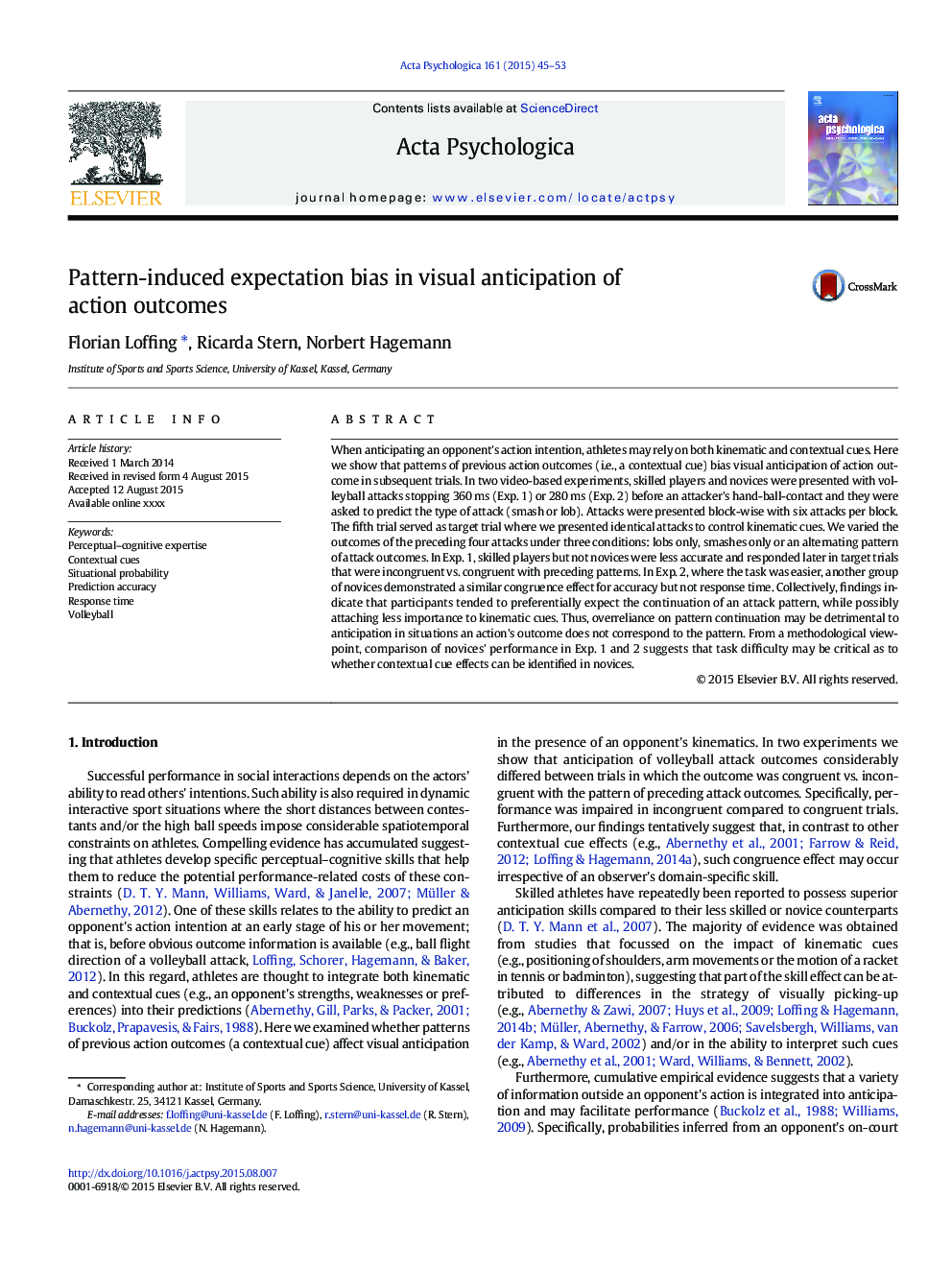| Article ID | Journal | Published Year | Pages | File Type |
|---|---|---|---|---|
| 7277215 | Acta Psychologica | 2015 | 9 Pages |
Abstract
When anticipating an opponent's action intention, athletes may rely on both kinematic and contextual cues. Here we show that patterns of previous action outcomes (i.e., a contextual cue) bias visual anticipation of action outcome in subsequent trials. In two video-based experiments, skilled players and novices were presented with volleyball attacks stopping 360Â ms (Exp. 1) or 280Â ms (Exp. 2) before an attacker's hand-ball-contact and they were asked to predict the type of attack (smash or lob). Attacks were presented block-wise with six attacks per block. The fifth trial served as target trial where we presented identical attacks to control kinematic cues. We varied the outcomes of the preceding four attacks under three conditions: lobs only, smashes only or an alternating pattern of attack outcomes. In Exp. 1, skilled players but not novices were less accurate and responded later in target trials that were incongruent vs. congruent with preceding patterns. In Exp. 2, where the task was easier, another group of novices demonstrated a similar congruence effect for accuracy but not response time. Collectively, findings indicate that participants tended to preferentially expect the continuation of an attack pattern, while possibly attaching less importance to kinematic cues. Thus, overreliance on pattern continuation may be detrimental to anticipation in situations an action's outcome does not correspond to the pattern. From a methodological viewpoint, comparison of novices' performance in Exp. 1 and 2 suggests that task difficulty may be critical as to whether contextual cue effects can be identified in novices.
Related Topics
Life Sciences
Neuroscience
Cognitive Neuroscience
Authors
Florian Loffing, Ricarda Stern, Norbert Hagemann,
